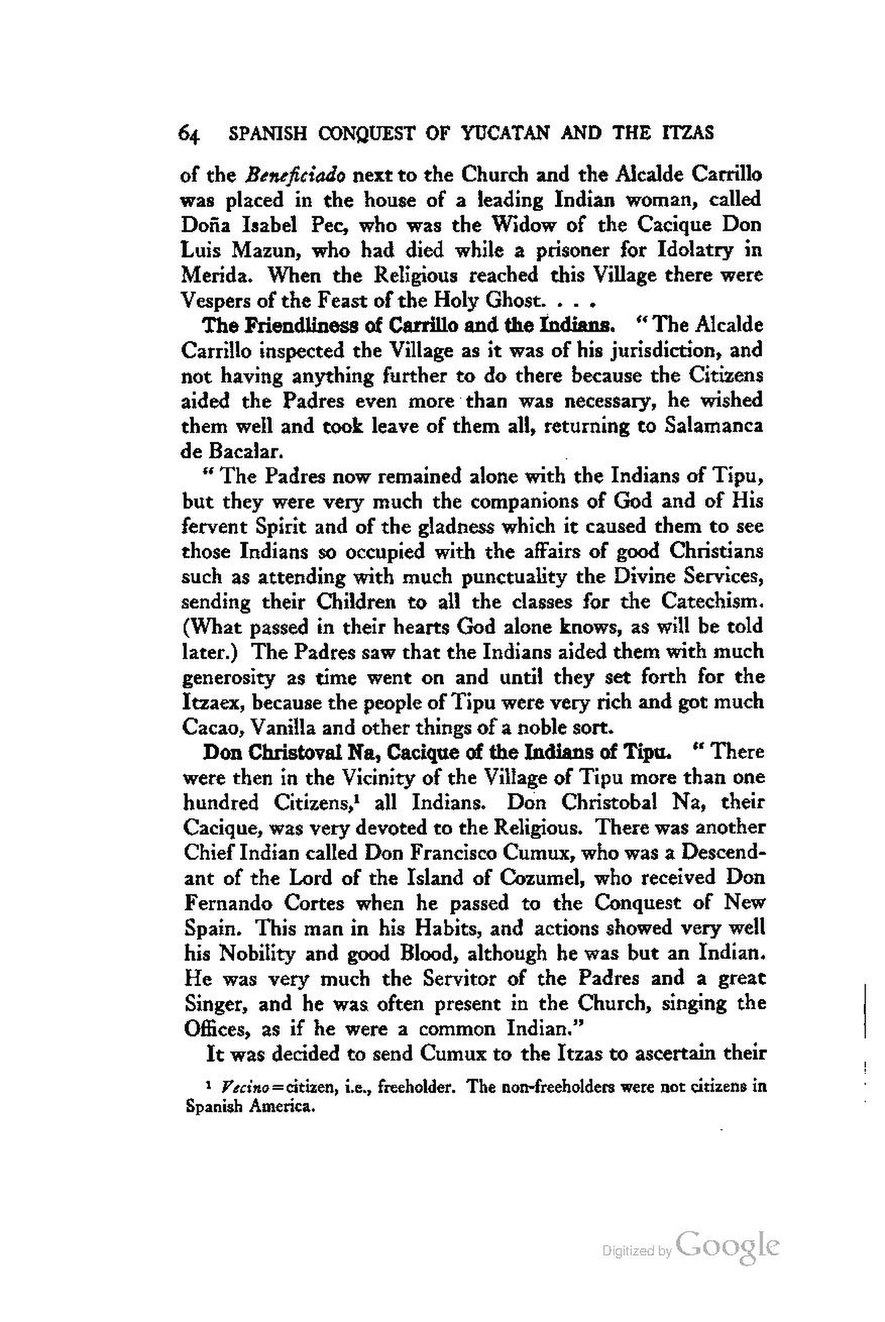of the Beneficiado next to the Church and the Alcalde Carrillo was placed in the house of a leading Indian woman, called Doña Isabel Pec; who was the Widow of the Cacique Don Luis Mazun, who had died while a prisoner for Idolatry in Merida. When the Religious reached this Village there were Vespers of the Feast of the Holy Ghost....
The Friendliness of Carrillo and the Indians. “The Alcalde Carrillo inspected the Village as it was of his jurisdiction, and not having anything further to do there because the Citizens aided the Padres even more than was necessary, he wished them well and took leave of them all, returning to Salamanca de Bacalar.
“The Padres now remained alone with the Indians of Tipu, but they were very much the companions of God and of His fervent Spirit and of the gladness which it caused them to see those Indians so occupied with the affairs of good Christians such as attending with much punctuality the Divine Services, sending their Children to all the classes for the Catechism. (What passed in their hearts God alone knows, as will be told later.) The Padres saw that the Indians aided them with much generosity as time went on and until they set forth for the Itzaex, because the people of Tipu were very rich and got much Cacao, Vanilla and other things of a noble sort.
Don Christoval Na, Cacique of the Indians of Tipu. “There were then in the Vicinity of the Village of Tipu more than one hundred Citizens,[1] all Indians. Don Christobal Na, their Cacique, was very devoted to the Religious. There was another Chief Indian called Don Francisco Cumux, who was a Descendant of the Lord of the Island of Cozumel, who received Don Fernando Cortes when he passed to the Conquest of New Spain. This man in his Habits, and actions showed very well his Nobility and good Blood, although he was but an Indian. He was very much the Servitor of the Padres and a great Singer, and he was often present in the Church, singing the Offices, as if he were a common Indian.”
It was decided to send Cumux to the Itzas to ascertain their
- ↑ Vecino=citizen, i.e., freeholder. The non-freeholders were not citizens in Spanish America.
